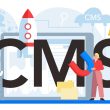Lifelong Learning Guide for Your Career
It is impossible to know everything about any topic ? even if you are considered the most knowledgeable in your community.
Always striving to do better and learn more is what will set you apart. That pursuit of knowledge is what has put humankind on the moon. It is how we have developed increasingly complex cities and computers.
It is how we have progressed as a species, and therefore it only stands to reason that pushing yourself is how you will progress as a person.
Lifelong learning offers many personal benefits. It is a very useful tool for improving your mental and emotional health, but for most, that is not enough. Thankfully lifelong learning is an excellent tool for those who want to progress their careers.
There is Power in Knowledge:
Even seemingly unrelated topics can help you improve your career. For example, say you like to learn about history. History helps you understand a culture, and in turn, can help you either market better to those in that community, or at the very least, allows you to communicate and lead others from that community with more sensitivity.
Of course, when you first start out, you can keep your efforts very targeted. Learning tangentially and progressively is a great place to start. For example, if you work in marketing, there is a lot that you can learn by delving further into psychology. If you work in nursing, however, you may want to learn progressively. In this case, instead of learning-related topics, you?ll go from your BSN to your MSN or your MSN to a DNP.
That isn?t the only option when it comes to more straightforward careers like nursing, however. If you are an APRN and want to specialize in something new or diversify your experience, you can instead look at np certificate programs. This will allow you to branch out instead of just move up.
How You Can Adopt Lifelong Learning-
The first step towards starting on the path of lifelong learning is your school. You can think of this as the foundation, on which all your future educational credentials are going to be built. If you send your kids to a reputed and credible international school, you will be able to help them create a culture of lifelong learning. This is not only something that they will thank you for, but an area that as parents, you need to be responsible for.
Lifelong learning should come from a variety of sources.
The Resources:
Here are just a few ways that you can learn.
- Read books (nonfiction and fiction)
- Listen to podcasts, audiobooks, and talks
- Attend workshops, conferences, and mentorships
- Take short online courses
- Earn a degree
- Earn a post-graduate certification
The Routine:
Learning a little bit every day will help you get far. It is also a great routine to build up if you ever consider completing a degree or post-graduate certificate. Try to carve out at least an hour every day where you can learn. This can be easily done by turning your commute into a time to learn, for example. Or you may find that reading or learning in the evening more pleasurable.
Don?t restrict yourself solely to topics that relate to your career, either. There is value in all topics, and more importantly, by focussing on your interests, you can keep learning fun, and therefore keep at it throughout your life.
How to Convince Others of the Value of Your Knowledge?
When you learn something that has a very clear relation to your career, you can easily put that knowledge to good use by earning the certificate.
There are many short courses that are budget-friendly that will allow you to do this on top of post-graduate certifications that will essentially tackle another specialization on top of your existing master?s degree. Both are excellent ways to showcase and prove your knowledge.
When it comes to information that you have that isn?t immediately obvious, you need to do some negotiating and convincing. Cover letters and interviews are the perfect opportunities to do this. Write up a list of examples that your knowledge set can help you with.
For example, say you understand the basics of coding. As a marketing manager, you can argue that this additional knowledge can help you better communicate with web designers and have a clear and realistic idea of what can and cannot be done both for your website and with digital marketing.
Everything is connected; you just need to be creative to explore the ways that any piece of information or topic you invest time in can help further your career.
If you can convince potential employers of this value, then you will also be the only candidate that brings that much extra to the table. They may even forgive a lack of experience or the fact that you don?t have some of the other wish-list items on your plate because you have demonstrated the value of your learning.






















